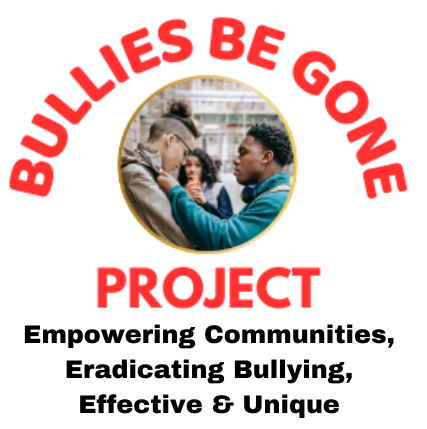Module 11
Cyberspace Anti-Bullying Training – Part 2
Weeks 21-22
Social Media is the catalyst for cyberspace bullying, which is unfortunately on the rise. The nasty content online directed toward students has proven to have devastatingly negative consequences, at times leading to suicide by the receiver. Teachers and school officials must be aware of Social Media interactions among students and monitor them appropriately.
To begin the process of Eliminating, Nullifying, and Preventing cyberspace bullying, two (2) interventions must occur:
- First: Parents must monitor their student’s Internet activity, despite any resistance by the child or teen. Any suspicious activity must be addressed immediately, even if the activity turns out to be harmless and innocent. “It is better to be safe than sorry!”
- Second: Students must be taught effective Self-Empowering Sustainable Training in the classroom and at home to eliminate and prevent cyberspace and other forms of bullying.
- This in-depth training entails changing the student’s MINDSET, whether that of the victim of the bully or the bully him/herself. If the mindset is effectively changed, it is likely the behavior will change to produce a more positive outcome as opposed to the negative one Bullying engenders.
- No matter how well-intended, we cannot prevent anyone from receiving Negative and Nasty WORDS directed toward them online or in person.
We can, however, be trained in ways to effectively respond to the bully’s negative and nasty WORDS, so the outcome is favorable for the receiver and not the bully.
- Discuss any events that occurred since their last BBGP training class involving a bullying situation or potential one, especially online.
- The objective is to make a BULLY’S HATEFUL WORDS AND NASTY RUMORS ONLINE INEFFECTIVE.
- By learning and retaining these important WORDS & PHRASES, you may find yourself in a position one day to help a friend who may be having an ONLINE BULLYING PROBLEM.
- You are now beginning to understand effective ways to develop skills and POWERFUL WORDS to defeat the bully’s online inappropriate intent.
- You are learning to do this with EMPOWERING CONFIDENCE & CONVICTION.
The next three (3) poetic lessons are a continuation of your bullying training, focusing specifically on Cyberspace anti-bullying:
- Rumors On-Line
- You Hide in Front of a Computer
- The Stranger on The Internet
WORDS CAN: Harm, Hurt, & Unfortunately and Sadly, Even Kill
WORDS CAN ALSO: Empower, Build Self-Confidence, Inspire, Motivate & Heal
The WORDS in the Bullies Be Gone Project have been written to effectively accomplish the latter.
When confronted with a bullying situation, students MUST understand:
- Specific Words to say
- How to say them (Effectively with Conviction)
- When and when not to say them
- What actions to take after saying them
- When and how to take actions
- Online, you will be better positioned to fend off rumors effectively and successfully, as well as the negative effect such rumors can have on your self-confidence, self-esteem, and emotional well-being. Emotional scars from bullying could linger far into adulthood.
- You will now begin strengthening and solidifying your self-confidence and mental toughness. You will discover the importance of who you really are as a person. No matter what anyone says to or about you, directly, or indirectly, you MUST understand maintaining and displaying your self-confidence should be first and foremost in your MIND.

What is the theme of this illustration and what could be a hidden message(s) as they apply to bullying? Students respond in their Student Workbooks.
“RUMORS ONLINE” – Poem
The rumors online about me, coming from you, are lies and you know it.
Are you spreading rumors because you’re really jealous of me and this is how you’ve chosen to show it?
Come on, is spreading vicious, stupid rumors the best you can do?
You are trying to destroy me, but the truth is, in the end, your lies are going to destroy you.
If your intent was to make me feel bad about myself, with nasty rumors spreading all over the internet,
Congratulations, you initially succeeded, but I refuse to go into a shell-of-shame because of you. I now declare your rumors meaningless at best.
You see, my parents and others that care about me have helped me find my inner strength that was stuck in quicksand.
I looked in the mirror one day and quickly decided no one can destroy my self-confidence, unless I allow him/her to. Moreover, I should be quite proud of who I am.
So, I strongly suggest you cease spreading your rumors and lies about me or anyone else throughout cyberspace.
Your rumors online have no clout anymore. I declare them baseless and empty threats. In the real world of decent, good, and respectful people where I live, your rumors have no place.
Al Johnson
Remind students: Select your favorite words or phrases in the poem. Copy them onto your “My Favorites” at the end of your workbook! Practice repeating them over and over again, so you are ready to confidently respond to a bully.
“RUMORS ONLINE” VOCABULARY – Discuss the meanings of the following words/phrases, and how they are used in the stanzas of the poem for a clear understanding of the Theme/Main Idea of the poem:
- Vicious
- Intent
- Initially
- Shell-of-Shame
- Declare
- Meaningless
- Inner Strength
- Clout
- Baseless
- Empty Threats
When the students have a good understanding of their new vocabulary, they are to write each in a complete sentence.
- Students are to challenge themselves by memorizing this poem. They can practice alone or with a partner.
- Students answer the question (in writing, not necessarily verbally) “Has anyone ever posted a nasty lie about you online? If ‘yes’, how did you react?”
- In this curriculum you have been learning skills to help you eliminate and prevent being bullied. From what you have learned, how would you now react to a vicious lie posted online about you? (Students make written responses in their Workbooks.)


